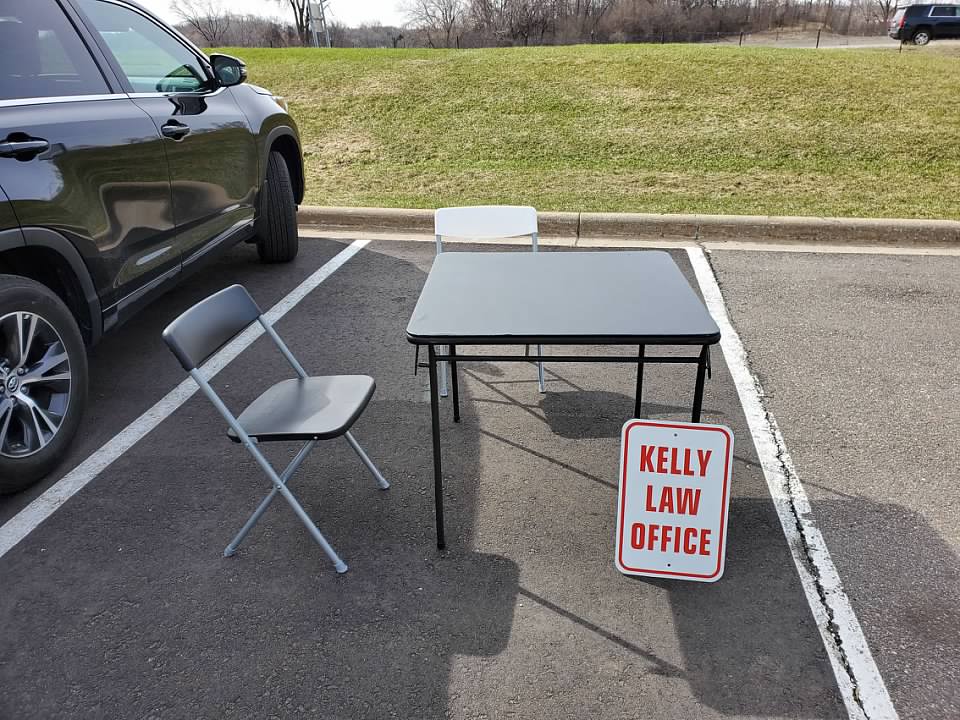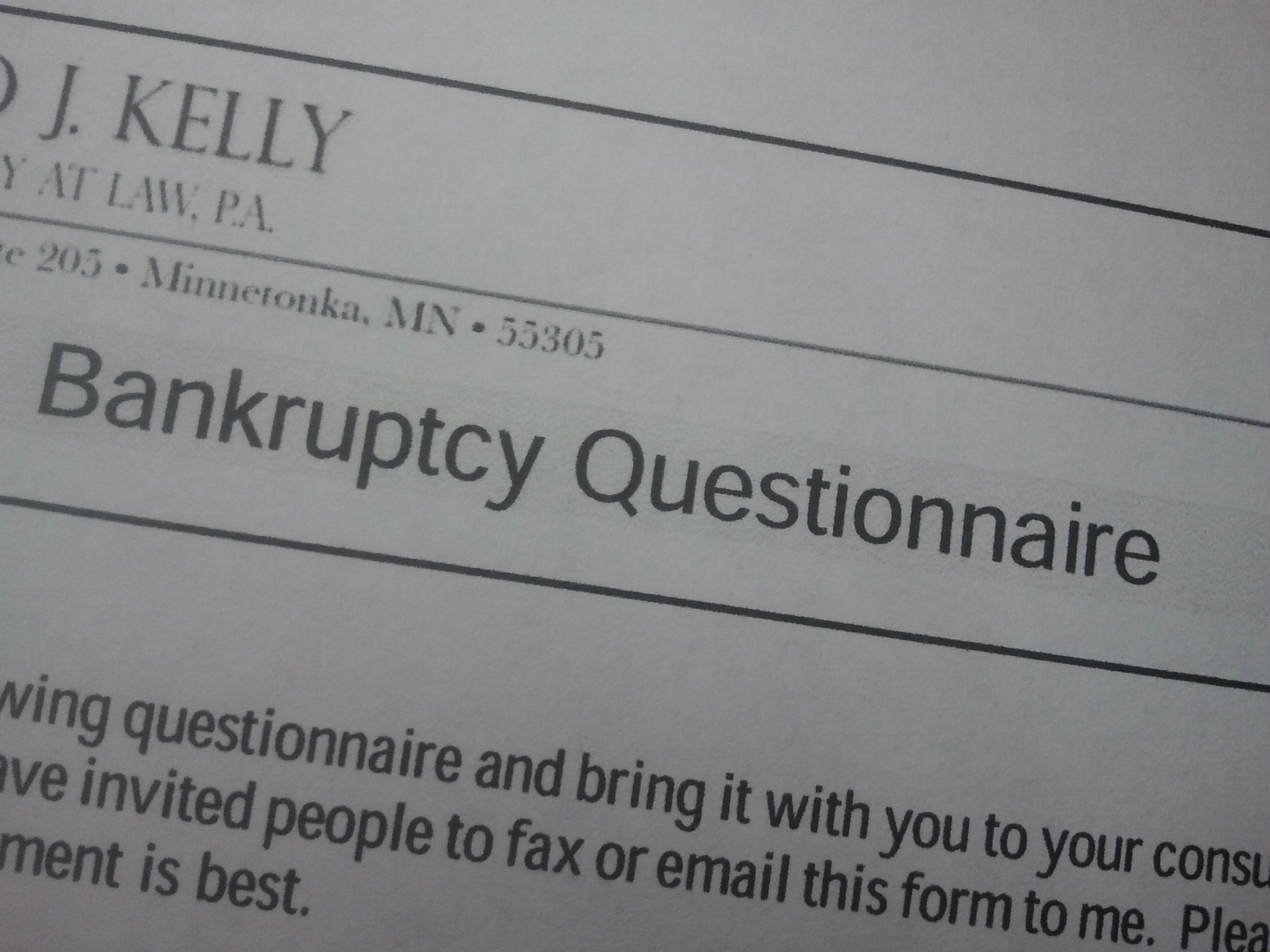By David J. Kelly, Minnesota Bankruptcy Attorney
This is the first in a series of seven posts about my top seven things that you should do if you are considering bankruptcy or preparing to file – either Chapter 7 or Chapter 13.
Item 1 on my list is that you should gather the financial records that your attorney will need to process your case. These will include payroll check stubs, bank statements, mortgage records, and tax returns. You should also be gathering together your monthly statements for all your debts. Include any nasty letters you may be receiving from lawyers or collection agencies. Don’t just gather the records you have, but also start keeping records of all your financial transactions. Keep track of your expenses. Keep all your receipts. If there is legal action against you, keep all the paperwork from that. There is a human tendency to want to throw away paperwork that contains bad news. Don’t do it. Keep it and give it to your lawyer.
Income Information
Your attorney will want to see at least six months of income information. Typically this would be pay stubs from any employment you have had during the most recent six months. He or she will also need to know about unemployment benefits, disability benefits, social security benefits, retirement income and any other income source for that six months. If you are self employed or operating a small business, create a cash in – cash out statement. This is a listing of funds received and business expenses paid over that the most recent six months. I prefer to it broken down by month. For a self employed person, “income” usually will be the difference between the cash in and the cash out.
Bank Statements
The trustee in your bankruptcy case will always ask to see at least 30 days of bank statements. Maybe they will ask to see as many as six months of bank statements. This would be a printout or statements for any bank accounts you may have. It always has to include the balance on the day the case is filed. If there are red flags in your bank statements, you want your lawyer to see them before somebody else does. Most of the time I start by asking to see my client’s most recent bank statement. Then I may ask for more depending on what I see.
Keep Your Receipts
If you do a lot of your financial business with cash, it is best to keep very careful records of what you are doing with the cash. Keep your receipts. Keep records for everything you do. You might or might not be asked to produce the receipts, but you should have them ready in case the trustee wants to see them.
Tax Returns
The bankruptcy trustee will require that you produce your most recent state and federal tax returns. I will want to see at least the last two years of your tax returns. There are income questions on the bankruptcy petition that go back two years. The best place for me to get your income information is from the tax returns. If you have unfiled tax returns, I will ask that you get your tax filing up to date before we file the bankruptcy. We have to list all your assets and all your debts. If you owe taxes that’s obviously a debt, and if you have a refund coming that’s an asset. Either way I need to know what that is.
Bills, Nasty Letters and Legal Actions
Even if we eventually get a credit report, there are many things that do not show on those reports. Or the reports might be wrong. So I want to see the statements and letters you have been receiving from your creditors. If there is a lawsuit or a threat of one, I want to see all the paperwork you have about that as well.
Documentation of Assets
If you own your home, find your deed from when you bought the place. Best too if you find a copy of the mortgage you signed at that time. If you have refinanced, find the papers about that too. Usually you get a big folder of stuff when you buy a house or refinance. Just bring that folder to your lawyer and he or she will pick out the needed documents. If you own a car, trailer, camper, or motorcycle, find the title certificates. If you have a boat or an ATV that is registered with the state, find your registration card or papers – your lawyer will need them.
Maintain ongoing records
Finally keep in mind that preparing a bankruptcy is an ongoing process. You are never realy done gathering records. As your attorney works with you to prepare the case, which could take several weeks, continue to keep records. When anything new turns up, be sure you give it to your lawyer.
Disclaimer
I am a debt relief agency. I help people file for relief under the federal bankruptcy code. This pose is for general information purposes only and is not legal advice. It does not create an attorney client relationship.
Call Dave – It’s Free
Call Dave for a free telephone consultation. 962-544-6356.







